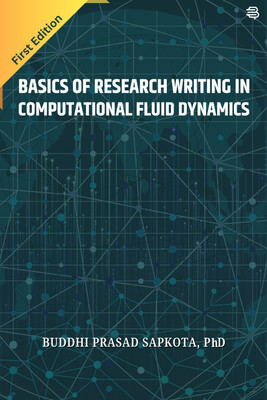Basics of Research Writing in Computational Fluid Dynamics(Paperback, Buddhi Prasad Sapkota, PhD)
Quick Overview
Product Price Comparison
Computational Fluid Dynamics (CFD) is developing rapidly, becoming an essential interface between theoretical and applied fluid mechanics through numerical simulations. With the increasing availability and use of CFD tools, the importance of effective technical writing has become paramount - whether for well-structured papers, theses, or technical reports. This book, Basics of Research Writing in Com-putational Fluid Dynamics, aims to equip students, researchers, and professionals with the skills needed to communicate CFD work effectively. While not a comprehensive guide to CFD theory or numerical methods (though fundamental concepts are introduced where necessary), this book focuses specifically on the writing process for CFD research; developing conceptual understanding and procedural skills; crafting abstracts, methods, results, and discussion sections and proper use of literature, algorithms, val-idation data, and software. This book serves as a valuable resource for graduate students writing theses or dissertations involving CFD; early-career researchers preparing journal articles or conference papers; industry professionals documenting simulation work in technical reports; non-native English speakers navigating CFD terminology in academic writing and students and practitioners across mathematics, engineering, and physics. The book includes annotated examples from published CFD literature, clear definitions of key terms and concepts, step-by-step guides for scientific writing.I extend my sincere gratitude to the global CFD community, particularly reviewers and editors; open-source developers advancing the field; colleagues who shared drafts and reviews and Booksclinic Pub-lishing for their support.This book serves as a starting point for research communication. True mastery develops through practice, peer feedback, and engagement with scientific literature. While every effort has been made to ensure accuracy, I welcome suggestions for improvement in future editions.


